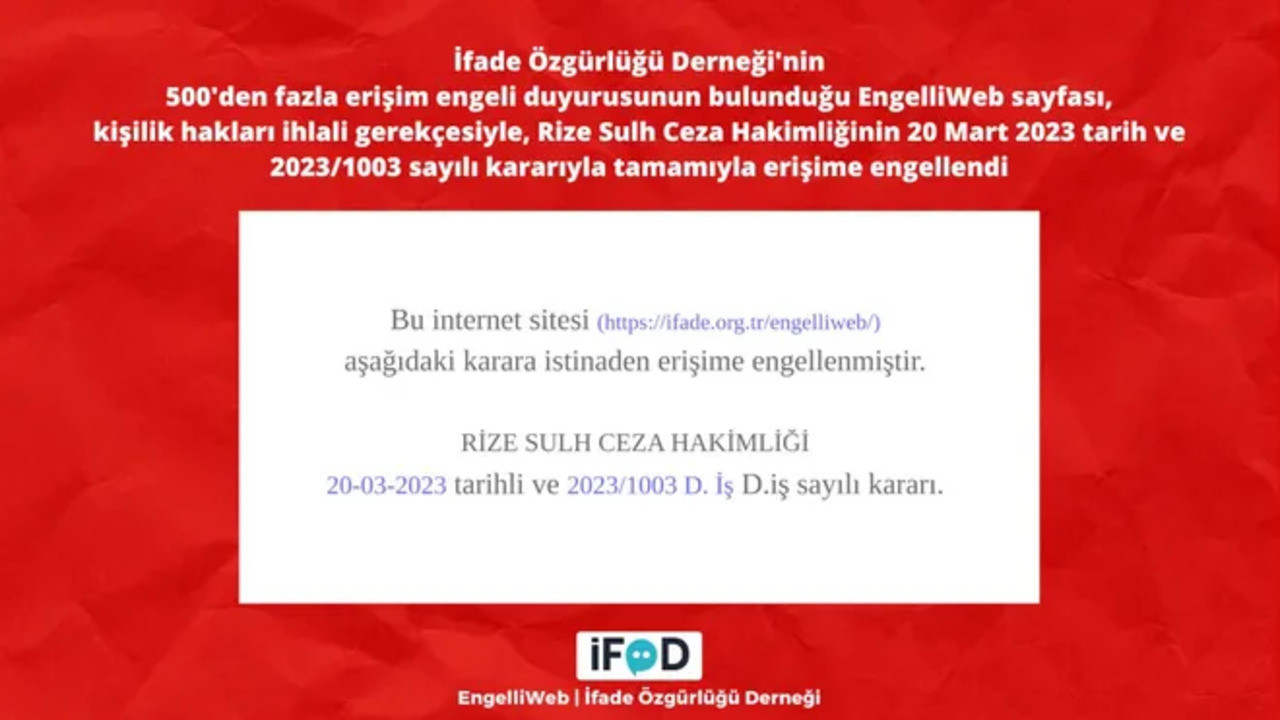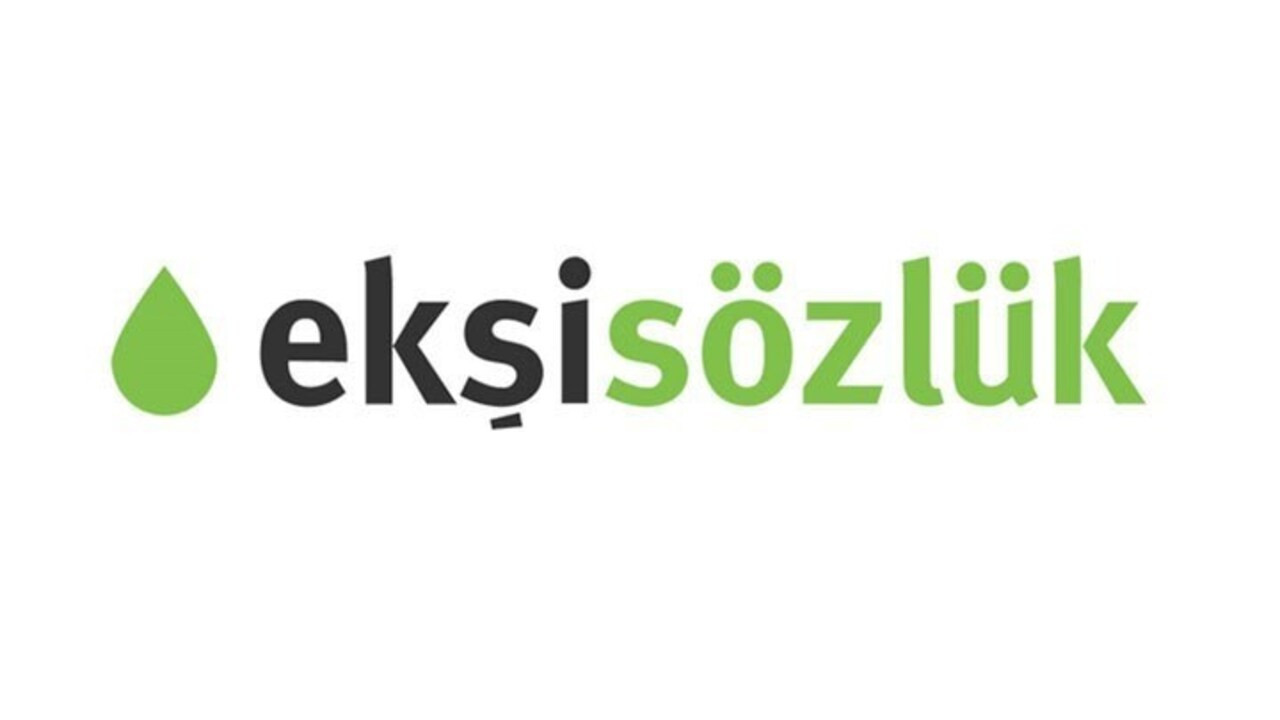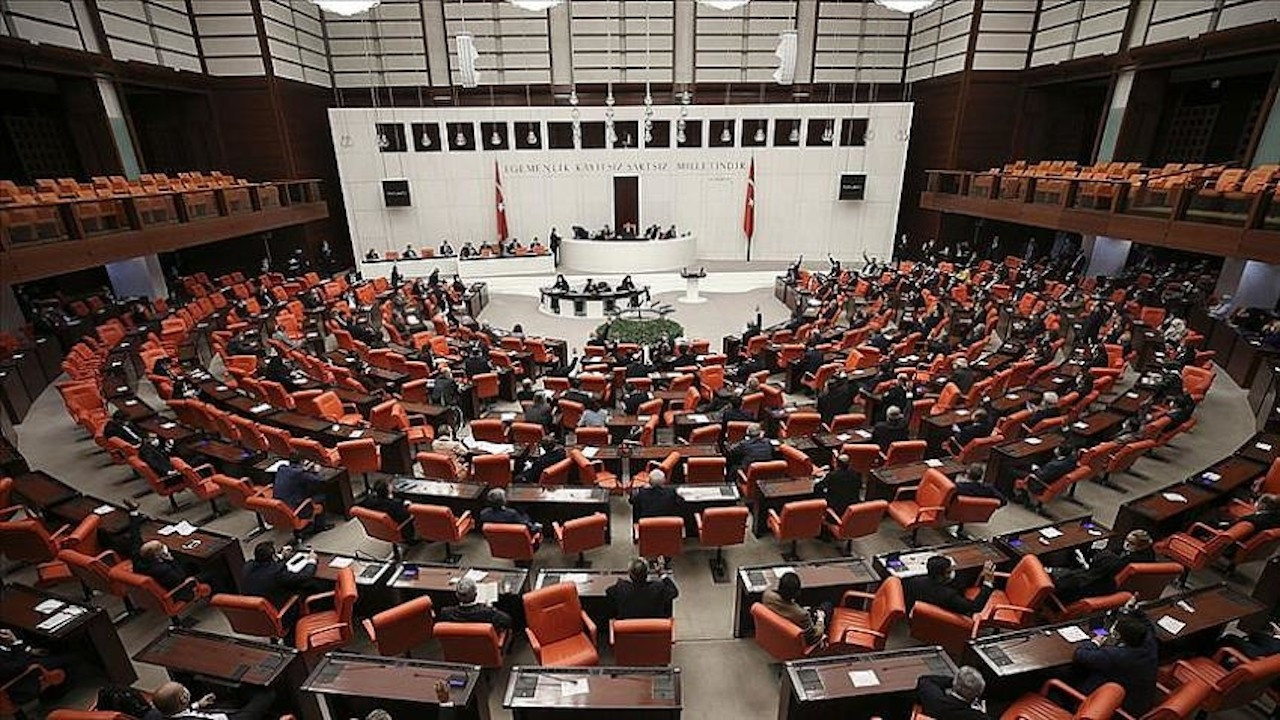Turkish government banned access to 137,000 websites in 2022
Turkey issued access bans to 137,717 websites in 2022, a recent report by the Istanbul-based Freedom of Expression Association (İFÖD) revealed.
Duvar English
At least 137,716 different websites became the target of access bans in Turkey in the year 2022, a recent report by the Freedom of Expression Association (İFÖD) revealed, online news outlet Diken reported on July 24.
This figure reached to 712,558 in total at the end of 2022. Accordingly, almost 500,000 of these blockings were made by Turkey's Information and Communications Technologies Authority (BTK).
In total, access to some 150,000 URLs was banned in addition to 9,800 Twitter accounts, 55,500 tweets, 16,585 YouTube videos, 12,000 Facebook posts and 11,150 Instagram posts, according to the report titled “Constitutional Court in the Shadow of Criminal Judgeships of Peace.”
The report -prepared by Yaman Akdeniz, a prominent Turkish academic and cyber-rights expert, and Ozan Güven, researcher- stated that more than 25 institutions have authorization to issue or request access bans.
The report revealed that the news reportings containing public interest have been “arbitrarily” blocked to access, and that the Constitutional Court (AYM) has not been implementing its own decisions and paved the way to censorship.
“Internet archives have started to be purified from the news of corruption, harassment, sexual assault and femicides. (The AYM left) the control entirely in the hands of the criminal judgeships of peace,” it added.
Yaman Akdeniz told online news outlet Diken that they aim to ensure that the permanent damage caused by censorship is not completely erased from the public memory by preparing the report.
“However, this year, with two different decisions, access to the EngelliWeb and our 2021 was blocked. Documenting censorship is getting more difficult each year,” Akdeniz said.
In March, Rize Criminal Judgeship of Peace imposed an access ban on the website of the EngelliWeb project of the Freedom of Expression Association (İFÖD). In the EngelliWeb's site, the association has been announcing access bans imposed upon websites, online news articles, and social media posts.
In October 2022, Turkish parliament passed the bill that criminalizes so-called “disinformation” spread online, which the opposition deemed as “censorship law.” The law carries a jail sentence of up to three years for anyone who spreads false or misleading information. The new law raised concerns of a further crackdown on media and opposition.

 Turkish court blocks access to association project announcing banned websitesDomestic
Turkish court blocks access to association project announcing banned websitesDomestic Turkish court blocks access to websites for reporting on preliminary probe into Erdoğan’s sonPolitics
Turkish court blocks access to websites for reporting on preliminary probe into Erdoğan’s sonPolitics Turkish court once again blocks access to popular social network Ekşi SözlükDomestic
Turkish court once again blocks access to popular social network Ekşi SözlükDomestic Turkish government agency confirms limiting internet after deadly blastDomestic
Turkish government agency confirms limiting internet after deadly blastDomestic Turkish court blocks access to several Kurdish websites on same dayDomestic
Turkish court blocks access to several Kurdish websites on same dayDomestic Turkish parliament passes 'disinformation law' tightening control on internet mediaMedia
Turkish parliament passes 'disinformation law' tightening control on internet mediaMedia